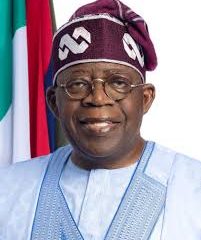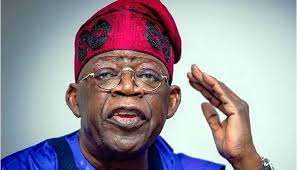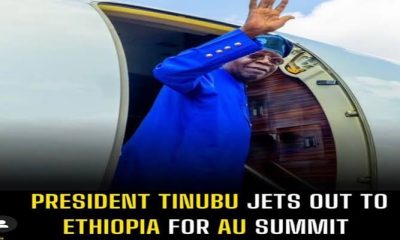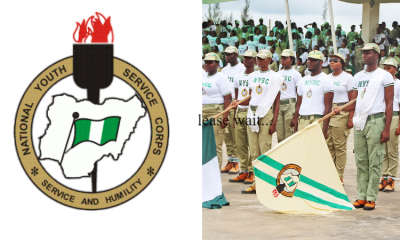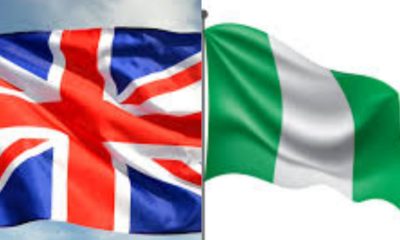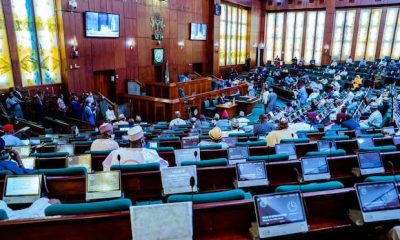National
Presidential poll: The Constitutionality Of INEC Declaration of Tinubu As President-Elect,By Okorodas Esq
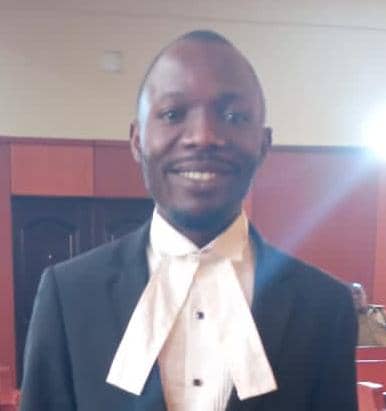
The 2023 Presidential and National Assembly Elections are not without mixed feelings among Nigerians. This is one such election where Nigerians irrespective of the political party came out in their numbers to exercise their rights to vote for candidates of their choice.
In recent times, Nigeria’s election has always been between two major Political Parties; that is, the Peoples’ Democratic Party (PDP) and the All Progressive Congress (APC) now the Ruling Party since after the merger. Other Political Parties have always been subsumed by these two major parties. The 2023 elections have changed the narratives with the emergence of the former Governor of Anambra State, His Excellency, Peter Gregory Obi of the Labour Party (LP) as well as Former Governor Rabiu Kwankwaso of the New Nigeria Rescue Party (NNRP). Little did some Nigerians know that it was not going to be politics as usual in Nigeria, especially those who rig to win elections, year in and year out.
The Presidential and National Assembly Elections took place on the 25th day of February 2023 following the guideline of the Independent National Electoral Commission (INEC). There is no gainsaying the fact that INEC is bounded by law under the 1999 Constitution (as amended), the Electoral Act 2022 as well as its Election Guidelines. Therefore, this piece shall dwell on the 1999 Constitution (as amended) and the Electoral Act, of 2022.
THE 1999 CONSTITUTION:
Section 134 of the 1999 Constitution as amended provides for conditions by which a candidate can be declared President. The provision reads thus:
134 (1) A candidate for an election to the office of President shall be deemed to have been duly elected, where, there being only two candidates for the election-
(a) he has the majority of votes cast at the election; and
(b) he has not less than one-quarter of the votes cast at the election in each of at least two-thirds of all the States in the Federation and the Federal Capital Territory, Abuja.
(2) A candidate for an election to the office of President shall be deemed to have been duly elected where there are more than two candidates for the election;
(a) he has the highest number of votes cast at the election; and
(b) he has not less than one-quarter of the votes cast at the election in each state in the Federation and the Federal Capital Territory, Abuja.
(3) in default of a candidate duly elected by subsection (2) of this section there shall be a second election by subsection (4) of this section at which the only candidate shall be-
(a) The candidate who scored the highest number of votes at any election held by the said subsection (2) of this section; and
(b) One among the remaining candidates who have a majority of votes in the highest number of States, so however that where there is more than one candidate with a majority of votes in the highest number of States, the candidate among them with the highest total number of votes cast at the election shall be the second candidate for the election.
(4) In default of a candidate duly elected under the foregoing subsections, the Independent National Electoral Commission shall within twenty-one days of the result of the election held under the said subsections, arrange for an election between the two candidates and a candidate at such election shall be deemed to have duly elected to the office of President if-
(a) He has a majority of votes cast at the election; and
(b) He has not less than one-quarter of the vote cast at the election in each of at least two-thirds of all the States in the Federation and the Federal Capital Territory, Abuja.”
THE ELECTORAL ACT 2022
We shall take a look at the provisions of the Electoral Act 2022, particularly section 66. The said section provides as follows:
“In an election of the office of the President or Governor whether or not contested and in any contested election to any other elective office, the result shall be ascertained by counting the votes cast for each candidate and subject to the provisions of section 133, 134 and 179 of the Constitution, the candidate with the highest number of votes shall be declared elected by the appropriate returning officer.”
The 11th day of the August 1979 general election is one case study, though slightly different from the instant election. In 1979 Alhaji Shehu Shagari contested the office of President alongside Chief Obafemi Awolowo, Dr Nnamdi Azikiwe, Aminu Kano and Alhaji Waziri Ibrahim. Shagari scored 5,688,857 votes, Chief Awolowo scored 4, 916,651 votes, Dr Azikiwe scored 2, 822,523 votes, Aminu Kano scored 1, 732, 113 and Waziri scored 1, 686,489 votes. The released election results showed that Shagari of the NPN won a majority of States in the Federation. However, the then 1979 Constitution and section 34A, subsection (1) (c) (i) of the Electoral Decree No. 73 of 1977provides for the requirement that a winner must score at least 25 per cent of the votes cast in at least two-thirds of the States of the Federation. At that time, there were 19 States in the Federation and Awolowo and others argued that Shagari did not meet up the Constitutional requirement to be declared the winner of the presidential election and that caused a constitutional crisis then.
The then FEDECO Chairman, Michael Ani, had raised the issue with the Minister of Justice for a possible interpretation of two-thirds of Nineteen States which is a condition for declaring a winner as President-elect. It was decided that two-thirds of nineteen States is 12.66 and Shagari pulled 33.8 per cent of the popular votes while Awolowo pulled 29. 2 per cent of the votes cast. Shagari won 25 per cent in 12 States and won 20 per cent in Kano State which prompted FEDECO to declare Shagari as the winner of the Presidential election of 1979. Although the declaration of Shagari as President was challenged by Awolowo and others they lost both at the Tribunal and at the Supreme Court. See the Supreme Court decision of Chief Obafemi Awolowo Vs. Shagari & 2ors (1979) FNLR Vol. 2.
The above situation is relatively different from the 2023 Presidential elections. The Constitutionality of the 2023 Presidential election lies in sections 133 and 134 of the 1999 Constitution and sections 25 and 66 of the Electoral Act, 2022 and sections 35, 37, 38, 48, 50, 53, 54 55 particularly 65 of the INEC Regulations and Guidelines for the Conduct of Elections, 2022 concerning uploading of the result. However, this piece will not consider the issue of the late uploading of results at the Polling Units and its legal effect. It shall restrict itself to the argument surrounding section 134, particularly the legality or otherwise of INEC declaration of Tinubu as President-elect.
Now let us consider the votes of the respective candidates. According to the INEC declaration. Tinubu scored a total vote of 8, 794,726, Atiku scored 6, 984,520, and Peter Obi scored 6, 101, 533 votes as declared by INEC. These results are currently contended by both Atiku and Peter Obi as wrongly computed figures with both claiming they had the highest number of votes but were rigged by the APC. Both the PDP and LP are contending that the original results that emanated from the respective polling units were not uploaded using the BIVAs thereby creating doubt as to the authenticity of the figures announced by INEC. This position is a matter of fact to be presented by both candidates. This piece is, therefore, outside the above contention.
Flowing from the results above, the State to State votes of each of the candidates showed that Bola Tinubu and Atiku Abubakar did not score up to two-thirds majority of the Federal Capital Territory, Abuja. This fact is in the public domain and known to INEC. The question to ask is, was INEC right to have declared Bola Tinubu as the winner of the Presidential election looking at the provisions of the law? To answer this question is to take a look at what the Constitution says. We shall now carefully consider the provisions vis-à-vis the declaration of Bola Tinubu of the APC as President-Elect by INEC. Let me reproduce Section 134
“A candidate for an election to the office of President shall be deemed to have been duly elected, where, there being only two candidates for the election-
(a) he has the majority of votes cast at the election; and
(b) he has not less than one-quarter of the votes cast at the election in each of at least two-thirds of all the States in the Federation and the Federal Capital Territory, Abuja.
(1) A candidate for an election to the office of President shall be deemed to have been duly elected where there are more than two candidates for the election;
(a) he has the highest number of votes cast at the election; and
(b) he has not less than one-quarter of the votes cast at the election in each state in the Federation and the Federal Capital Territory, Abuja.”
The word used in the above provision is… and the Federal Capital Territory. Can the word ‘and’ be interpreted to mean differently, I think not. What then is the word ‘and’? And is a word used to connect words of the same part of speech, clauses, or sentences, that are to be taken jointly. The word ‘and’ is conjunctive and not disjunctive, it is used to coordinate conjunctive sentences which further means ‘in addition to’.
The contention of many legal opinions is as to whether or not the Federal Capital Territory is a State or not and some rely on Section 299 which states thus; “The provisions of this Constitution shall apply to the Federal Capital Territory, Abuja as if it were one of the States of the Federation.” By section 2 (a) the Constitution states that ‘Nigeria shall be a Federation consisting of States and the Federal Capital Territory’. While section 4 defined FCT to be Abuja and sections 297 (1) and (2) defined the ownership of all lands in the FCT-Abuja to be vested in the Government of the Federation. The word used in section 299 is ‘as if’ which means the Federal Capital Territory is not a state per se, but it should be treated as if it’s a State and be accorded the Status of a State. This position has had conflicting Supreme Court decisions. In the Supreme Court decision of AG. Federation v. AG Abia State &Orss (2002) 4 SC, 6 NWLR (Part 764) concerning the onshore/offshore dichotomy case, the Supreme Court held that the Federal Capital Territory is not a State nor a Local Government in a State. In 2002, the same Supreme Court in NEPA vs. ENDEGERO (2002) All N.L.R. 407, LPELR-1957 (SC) held a contrary view as to the Statute of the Federal Capital Territory, that the Federal Capital Territory is a State within the meaning of Section 299. In the case of Baba-Panya & vs. President, FRN & ano (2018), 15 NWLR (pt. 1643) 395, the Supreme Court held that the Federal Capital Territory should be treated as if it is a State, that the FCT is not inferior or superior to any State of the Federation, it has the statute of a State by the provision of section 299.
In all the above cases, the word to be considered is the use of the word ‘as if’.Concerning the decision of the Learned Juries, these decisions were incorrect. If the Federal Capital Territory is a State within the contemplation of section 299, it would have been explicit and abundantly clear without rescues to the word ‘as if’ in the Constitution. The FCT would have had its full treatment as a State including allocation of Revenue as contained in Section 162 of the Constitution. If the intendment was to make the Federal Capital Territory a State, it would have said expressly. The fact is that the Federal Capital Territory is not a State and the decision of AG., Federation vs. AG Abia State &Orss (supra) remains considerably clear as we still currently have 36 States and for purposes of the boundaries of the Federation we have; and the Federal Capital Territory, Abuja, which is the seat of power.
The argument as to whether the Federal Capital Territory is a State and the effect that a Candidate for the office of the President needs not score two-thirds of the majority of votes and the Federal Capital Territory is misconceived. The provision of Section 134 has no bearing on the Statute of the Federal Capital Territory. The FCT must not be declared or considered as a State before a Candidate can meet the requirement of 2/3. If a candidate failed to meet 2/3 of votes in the State and the FCT, which means including the FCT, such a candidate has failed to meet the requirement to be declared as President-Elect.
The provision of section 134 intends that a President that is to be elected as President of the Federation should be a President which is acceptable by the majority of States including the Federal Capital Territory. The State here does not mean the land, it means, the people of the various States of the Federation and those of the FCT. The actual word used is the word ‘and’ which means that a candidate should score two-thirds of votes in the Federal Capital Territory. The implication is that where a candidate fails to score two-thirds of the States and the Federal Capital Territory, such a candidate cannot be declared as President-elect.
What INEC needed to do in the February 25th 2023 Presidential and National Assembly Elections was to apply the provision of Section 134 (2) (a) and (b) and (3) (a) and (b). that is, INEC ought to conduct a second election for two Candidates which in this case would have been Bola Tinubu of the APC and either Atiku Abubakar of the PDP or Peter Obi of the Labour Party.
Assuming that was the position of NEC, what we shall consider is the Candidate between Atiku and Obi, who is qualified for the re-run (second election)? The provisions of Section 134 again shall apply and in this case, Section 134 (2) (a) and (b). the Provision of the section states;
(a) the candidate who scored the highest number of votes at any election held by the said subsection (2) of this section; and
(b) one among the remaining candidates who have a majority of votes in the highest number of States, so however that where there is more than one candidate with a majority of votes in the highest number of States, the candidate among them with the highest total number of votes cast at the election shall be the second candidate for the election.
The above provision states that the candidate with the highest number of votes is subject to subsection (2) which states that such a Candidate shall score not less than one-quarter of the votes cast at the election in each of at least two-thirds of all the States in the Federation and the Federal Capital Territory, Abuja. Now the issue is, did Atiku of the PDP meet this requirement? The answer is no. Atiku did not also meet the two-thirds and the Federal Capital Territory requirement and so what INEC ought to have done by the results announced by INEC was to conduct a second election for Bola Tinubu of the APC and Peter Obi of the LP and nothing more. This is my humble submission.
Long live the Electorates!
Long live the Federal Republic of Nigeria.
By E. K. Okorodas Esq.


